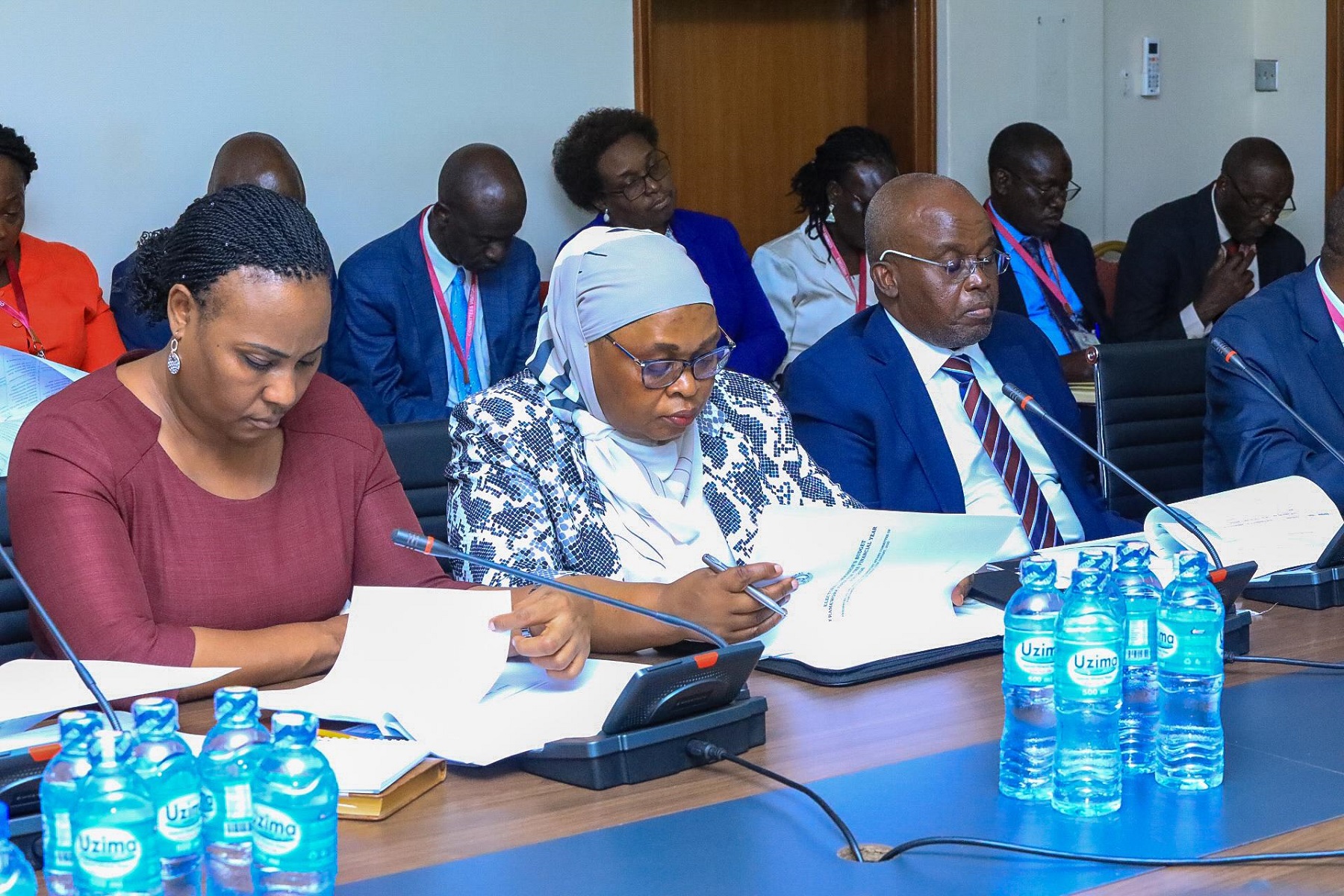The Electoral Commission (EC) of Uganda has reported a significant funding gap of about Shs623.9 billion needed to successfully run the upcoming general elections scheduled from January 12 to February 9, 2026. This shortfall threatens to undermine the smooth conduct of the electoral process, demanding urgent attention from the government and stakeholders.
Justice Simon Byabakama, the Chairperson of the EC, revealed these concerns while presenting the Budget Framework Paper for the Financial Year 2025/26 to the Parliamentary Committee on Legal and Parliamentary Affairs. He emphasized that the 2025/26 financial year is crucial as it marks the final phase in implementing the General Elections Roadmap. This roadmap encompasses essential electoral activities such as nomination of presidential candidates, voter education, ballot paper production, polling day logistics, and result tallying.
A critical highlight of the funding gap is the incomplete construction of the EC’s new headquarters at Lubowa. The facility, which is vital for hosting nomination events and declaration of election results, remains unfunded for the Shs62 billion needed to complete its first phase. The lack of a dedicated headquarters forces the commission to incur higher costs from hiring external venues for these pivotal election functions.
Besides the headquarters, other unfunded priorities include ongoing projects like the construction of regional offices and storage facilities, which are essential for the decentralized management of electoral materials. There are also unmet financial obligations such as wage enhancements for EC staff and arrears from previous budgets that add to the commission’s operational challenges.
The EC requires approximately Shs450.2 billion for Phase III of the General Elections Roadmap, which covers critical activities on polling days and the tallying of results. However, no provision has yet been made to bridge this gap fully. Although the government allocated Shs594.9 billion towards the elections budget, this only covers part of the projected Shs774.6 billion needed for election-related activities in the 2025/26 fiscal year, leaving a shortfall of Shs179.7 billion in this period alone.
The increasing cost of elections has been attributed to the expanding voter population, the rise in the number of polling stations, the creation of new city units, inflationary pressures, and additional costs related to integrating ICT systems such as the Electronic Results Transmission and Dissemination System. Furthermore, the inclusion of elections for Special Interest Groups and Local Council elections, as well as necessary voter education campaigns, continues to drive costs higher.
Justice Byabakama appealed to Parliament and the Ministry of Finance to urgently address the funding deficits to enable timely and effective delivery of all planned electoral activities. Without sufficient financing, critical components such as voter education, recruitment and training of polling officials, production of ballot papers, and conducting multiple by-elections may be compromised.
The commission’s funding challenges also highlight broader concerns about electoral preparedness and governance ahead of an election that features significant political stakes. The EC Chairperson underscored the constitutional mandate under Article 61 to conduct free, fair, and credible elections and underscored that the current funding gaps severely hamper this constitutional obligation.
In summary,
Uganda’s Electoral Commission faces a daunting financial challenge ahead of the January 2026 elections, with a total budget shortfall of about Shs623.9 billion. This deficit poses risks to the completion of critical facilities and the execution of essential electoral processes. Addressing this funding gap is paramount to ensuring the elections proceed smoothly, transparently, and credibly, thereby upholding Uganda’s democratic principles and constitutional mandates. The commission and Parliament must collaborate closely to mobilize the resources required to meet these challenges.
This election is especially significant as it follows amendments removing presidential term limits, with incumbent President Yoweri Museveni seeking another term, making the stakes very high politically. Proper funding and preparedness of the EC will therefore be pivotal to managing the electoral process in a manner that fosters confidence among all Ugandans.
Overall, the funding gap and incomplete facilities highlight not just financial issues but also the operational and logistical complexities the EC must navigate to deliver on Uganda’s electoral democracy in 2026. Without adequate funding, the costs to political stability and governance could be profound. The call to action by the EC Chairperson underscores the urgency and importance of securing necessary resources for Uganda’s democratic future.
Click For more reference From Parliament Of the Republic of Uganda.

